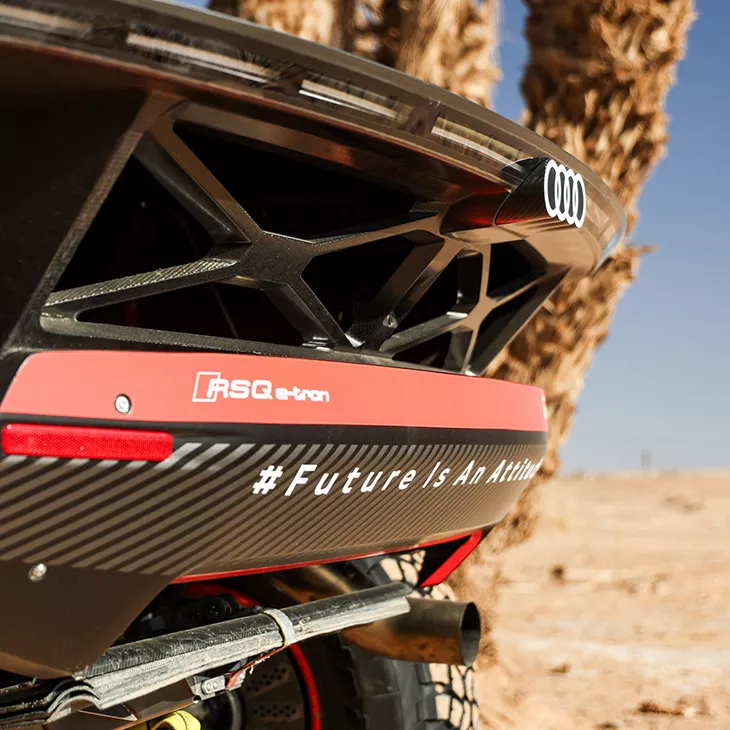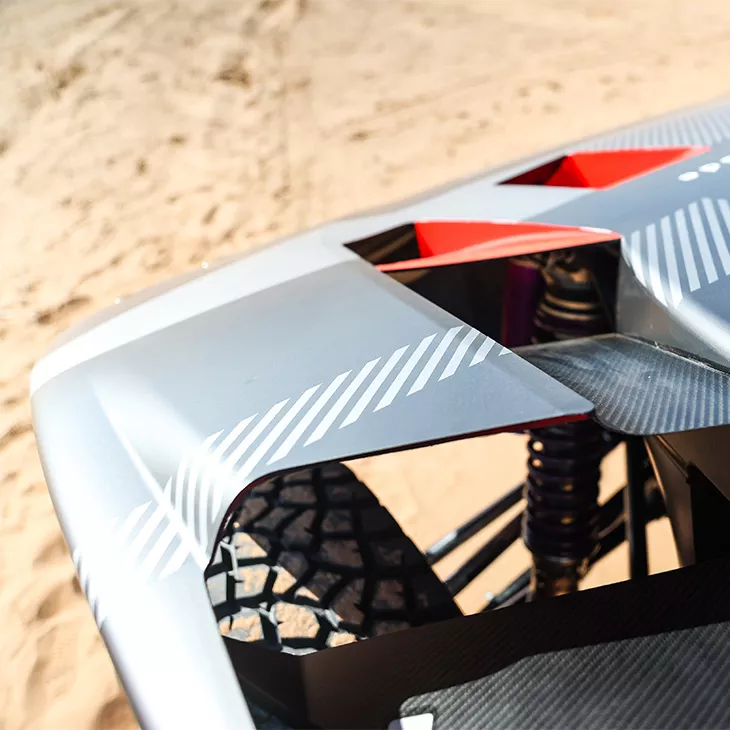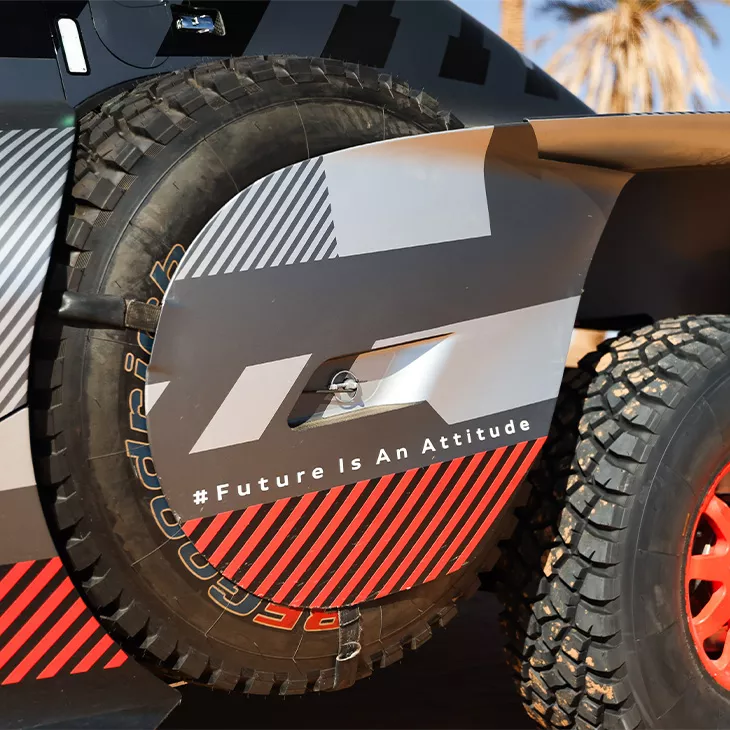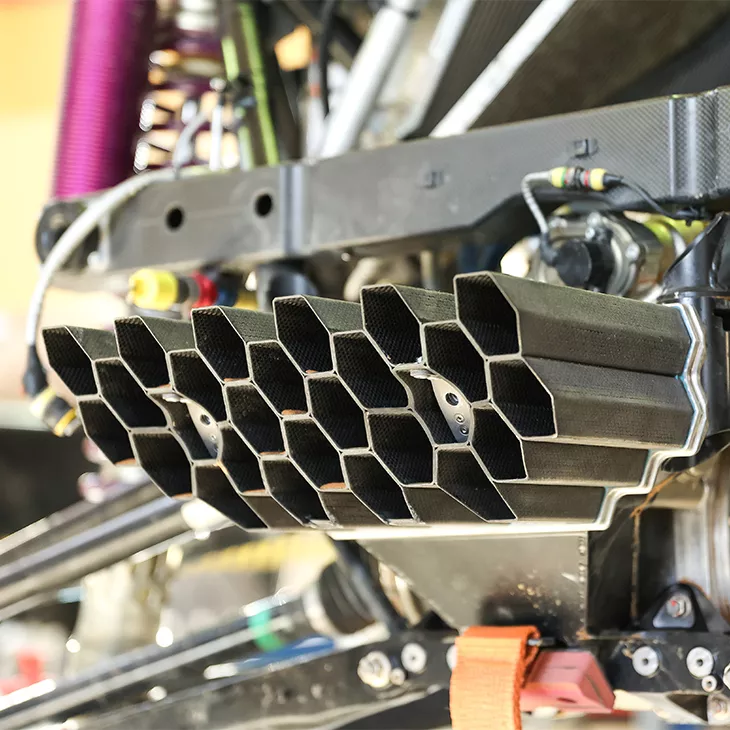Audi RS Q e-tron for 2024: Innovative prototype with many new details
• Numerous improvements in five major areas
• Prototype better to handle, even more reliable and safer
• Perfect preparation for 2024 Dakar Rally
Audi improves the RS Q e-tron once again: Ahead of its third outing in the Dakar Rally, the rally prototype, with its pioneering electric drivetrain, high-voltage battery and energy converter, receives innovations in many areas. The Audi driver crews of Mattias Ekström/Emil Bergkvist, Stéphane Peterhansel/Edouard Boulanger and Carlos Sainz/Lucas Cruz benefits from numerous detail improvements in January 2024. The new ideas make the RS Q e-tron safer, more reliable, more comfortable and a little lighter, as well as having shorter maintenance times for the team.
In January 2024, Audi will take on the world’s toughest desert rally for the third time with its low-emission vehicle. “What the RS Q e-tron is fundamentally capable of has been demonstrated by our drivers and co-drivers with six stage victories and 22 other single-day podium results at the Dakar Rally since 2022,” says Rolf Michl, Head of Audi Motorsport. “Now it’s a matter of showing our performance as steadily as possible so that we can fight for top positions.” Audi Sport has analyzed the previous outings, identified weak points and set clear priorities for further development. Dr. Leonardo Pascali, the project’s new Technical Director, has focused on five key topics with his development team since the early summer.
Performance: ideas in many areas
From the chassis to the software, from the body to the electric drivetrain: The engineers looked at various aspects to make the Audi RS Q e-tron even more competitive within the framework of the regulations. Working with the shock absorbers and springs helped the team to find an even better set-up. To get even closer to the minimum weight of 2,100 kilograms, while the weight of the new, more robust tires increases, various components have been optimized in terms of weight. This applies to the rear bonnet, as well as the smaller brake calipers, but also to the footrest for the co-driver. The regulations also slightly shift the balance between Audi’s T1U model and the opponents in the T1 class in terms of power-to-weight ratio: The 263 kW of maximum output from the electric motors at the start of the 2023 season (including the efficiency coefficient) turned into a value of 271 kW during the Dakar Rally, following a change in the regulations. As of January 2024, the figure will rise to 286 kW. At the same time, the regulations raise the weight of the opponents’ T1 models by 10 to 2,010 kilograms.



